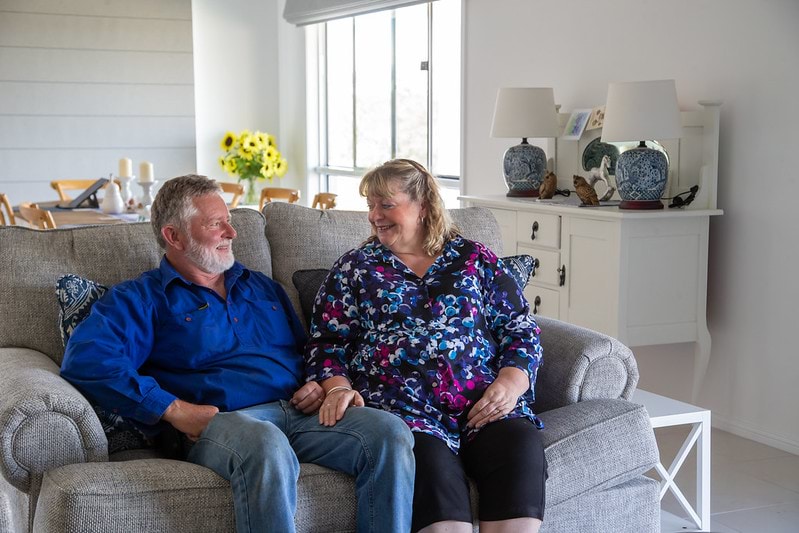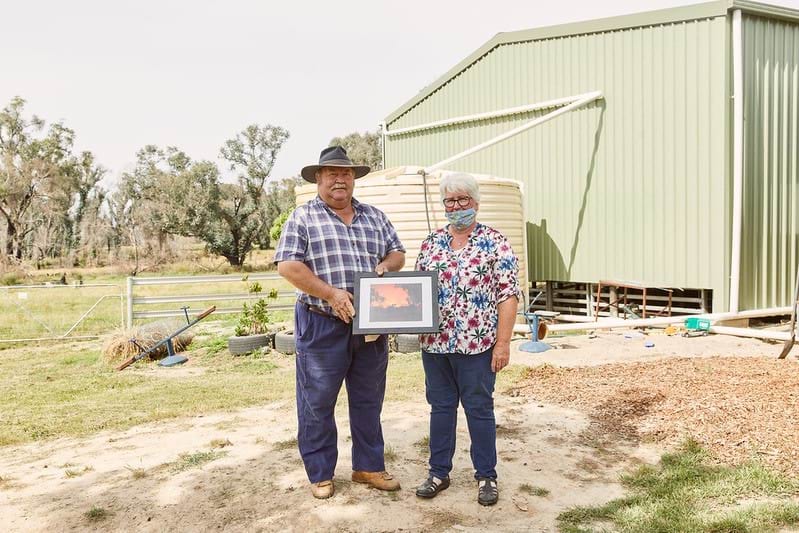The Hogans
The thriving small business sector in East Gippsland and North East Victoria was hit hardest by the double blow of catastrophic bushfires and a global pandemic. Those who escaped direct damage still lost peak business in the summer season and faced lockdown effects in the following months.
Craig and Kathy Hogan own Alpine Aspects, a picturesque Bright hotel. Fires wiped out the business’s income during one of the busiest times of the year, but its owners said the $10,000 Small Business Bushfire Support Grant was a “godsend” that “enabled us to stay on our feet.”
The grant was specifically designed after feedback from communities, it was available to small businesses and farmers who lost significant income from the bushfires, whether flame-impacted or not. Over 2300 businesses have received the grant.
When preparing to apply, Craig Hogan said he was “expecting something massive” but “the process was really straightforward and the team was really helpful.”
Local Economic Recovery
The Australian and Victorian Governments’ Local Economic Recovery Program provided $8 million in funding to grow jobs, create apprenticeships, attract more visitors and help farms become more resilient, including:
- $2,100,000 for On-farm Recovery Support Services, linking farmers with dedicated agricultural recovery experts to assist with pasture recovery, ground cover management, soil health, erosion, farm water supplies and quality, risk and resilience planning (including fire preparedness), and mental health and wellbeing.
- $1,960,000 for the Gippsland and High-Country Visitor Reactivation Program, providing additional support to Tourism North East and Destination Gippsland.
- $1,280,000 for the Victorian Apprenticeship Bushfire Recovery Program to create 40 new apprenticeship and traineeship positions for young people.
- $1,000,000 for a Microenterprise Development Program, based on a successful pilot program in the Latrobe Valley, providing coaching, mentoring, and microfinance access.
- $1,000,000 for the Taungurung Bushfire Recovery Economic Prosperity Program, supporting Aboriginal cultural tourism opportunities on Taungurung Country and establishing the regional cultivation of mountain pepper, a ‘superfood’ grown by Aboriginal people for generations.
The Giles family
After losing their house and farm, Milusa and Kevin Giles (above) received the $75,000 grant for directly affected primary producers, the $10,000 grant for income-hit small businesses, and more.
The pair said they made the decision to rebuild their Sarsfield wildflower farm based on the grants, and other support they have received from their community and from the government.
Milusa said the $75,000 primary producer grant “was the easiest grant we did”. Kevin said:
“If you can get that help, you can start stockpiling hay for the next drought, you can put in some bigger dams and drought-proof your farm, silos and replace your hay sheds”.
Bushfire grants featured on this page are funded by the Australian and Victorian Governments.
The Alberts
The Recovery Support Program has worked one-on-one with hundreds of directly impacted farmers. Greg and Alice Albert, pictured above at their new short-term modular home, lost their home and much of their 700-acre Cudgewa property in the fires, including 300 superfine wool ewes plus horses and cattle.
Initially, the Alberts were reluctant to seek support, but after difficulties, they joined Case Support, linking them up with Gateway Health and case support worker Antona. Gateway Health is one of many local community service agencies delivering the Recovery Support Program.
The Alberts say:
“They would have struggled to access as much support as they had if they had not signed up with Gateway Health Bushfire Recovery Program who had made the navigation of grants and support much easier [and thought it] may have been too overwhelming to tackle on their own.”
Updated

